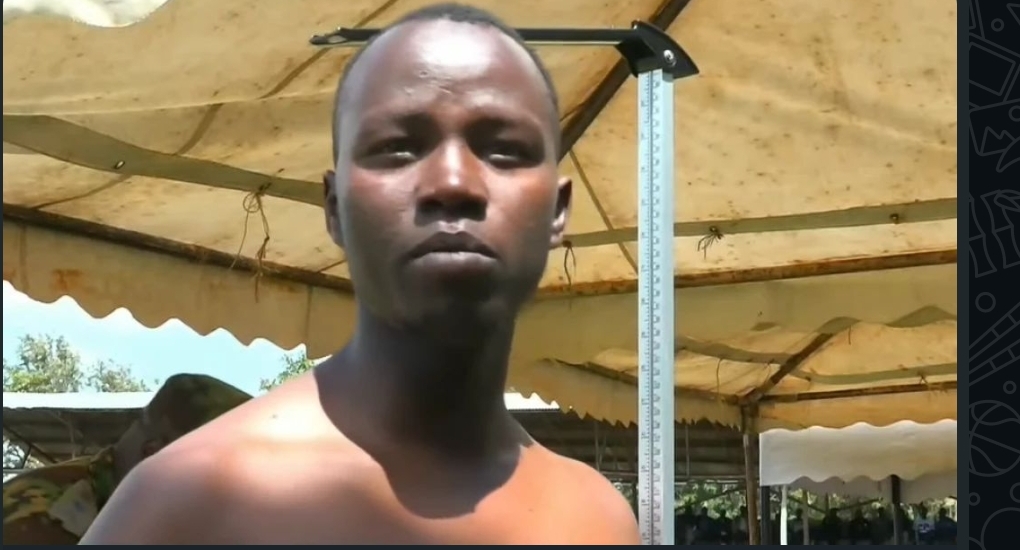BARINGO MAN’S LONG STRUGGLE
Idris Kiprop, a determined young man from Baringo County, has openly expressed his deep frustration after failing to join the Kenya Police Service despite attempting recruitment eight times since 2018.

The challenges he faces represent a broader issue many hopeful recruits encounter in the national recruitment exercises.
“Kutoka 2018 nimejaribu…for 8 good years sijawai pata, wenzangu wamekuwa wakipata,” he said.
Kiprop’s repeated rejections, primarily due to not meeting the height requirements and other technical criteria, have been a source of pain and disappointment for him and his family.
“Niko trained nimefanya NYS paramilitary training,” said Kiprop.
“Toa viatu…kila wakati wanasema mimi ni mfupi ata mimi nataka hiyo kazi,” he said.
In addition to police recruitment, he has also unsuccessfully applied to Kenya Defence Forces (KDF), Kenya Wildlife Service (KWS), and Kenya Forest Service, all with similar outcomes.
“Nimejaribu KDF nikaambiwa mimi ni mfupi…nimejaribu KWS, Kenya Forest na naambiwa kitu the same tu,” said Kiprop.
At the latest recruitment exercise held at Kabarnet Showground, Kiprop protested loudly after being disqualified once again, drawing attention to the emotional and physical toll such repeated attempts can take on young aspirants trying to serve their country.
His story highlights the strict and sometimes rigid standards applied during recruitment, which, while ensuring professionalism, can leave many aspirants discouraged.
Kiprop’s persistence demonstrates a strong desire to serve, but his case raises questions about inclusivity and the support systems in place for those aspiring to join uniformed services.
The recruitment exercises across Kenya have seen thousands of hopefuls, with many facing disappointment.
While some successfully join after clearing various stages, stories like Kiprop’s illustrate the human side of the recruitment process whereas determination clashes with tough eligibility rules.
As Kiprop continues his quest, his voice has sparked conversations about the need for a more supportive framework for recruits, considering diverse physical and social backgrounds.
